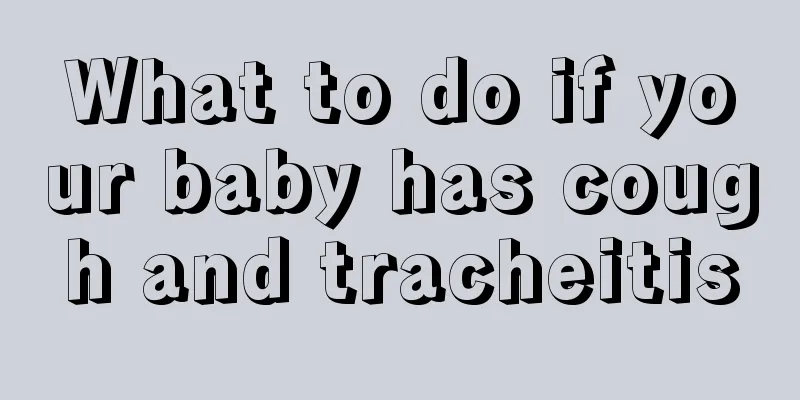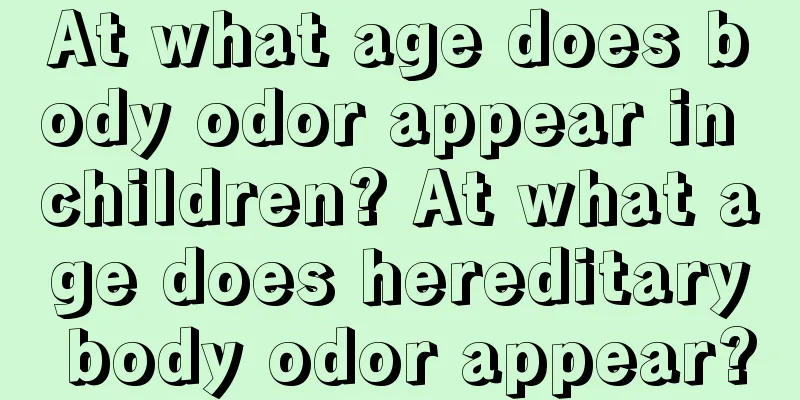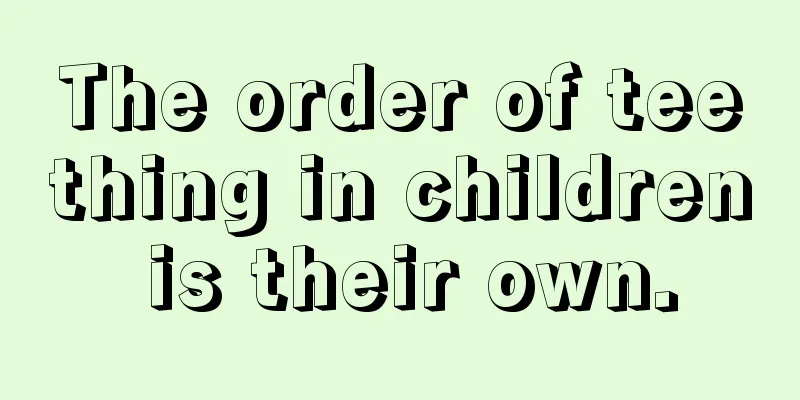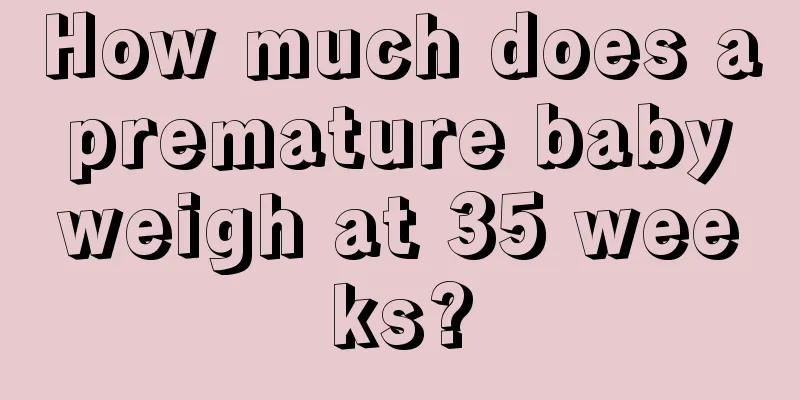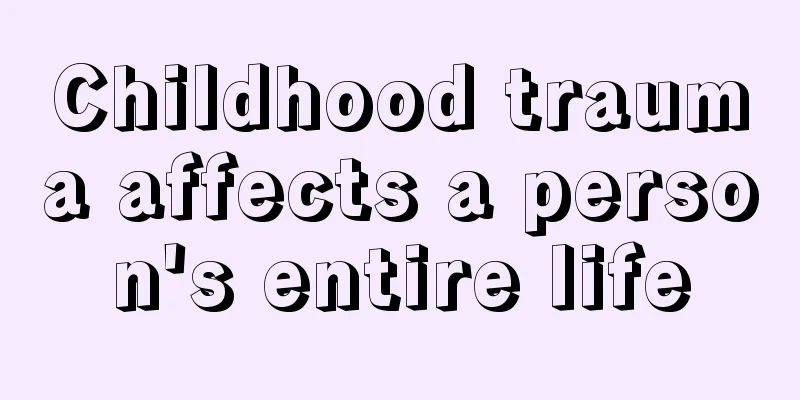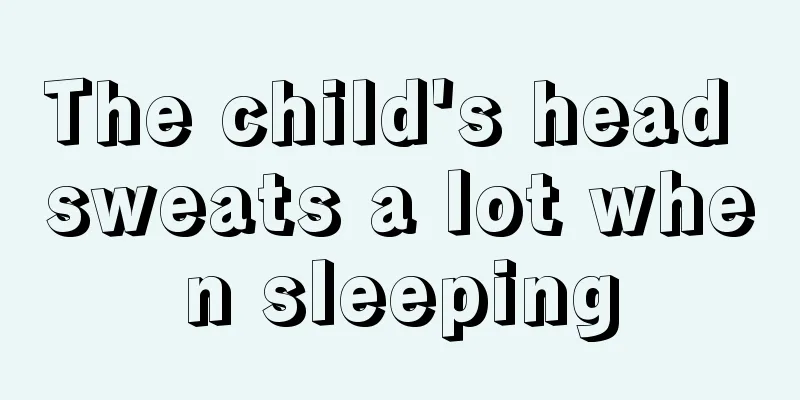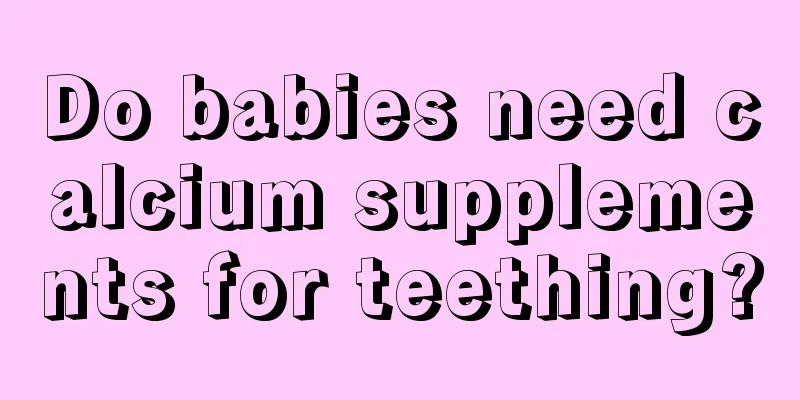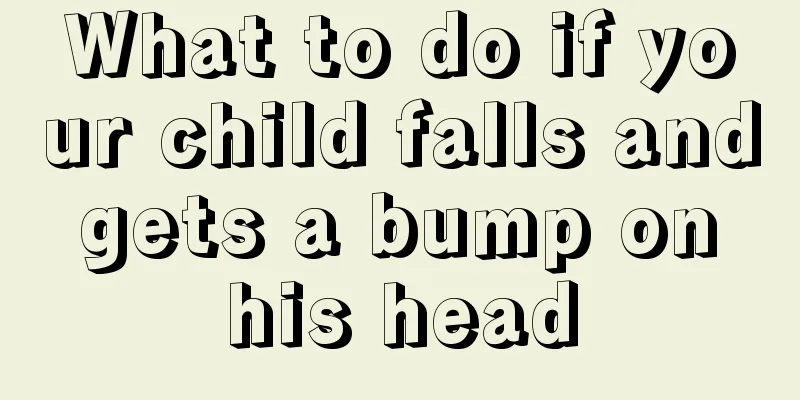What is the best medicine for children's fever?
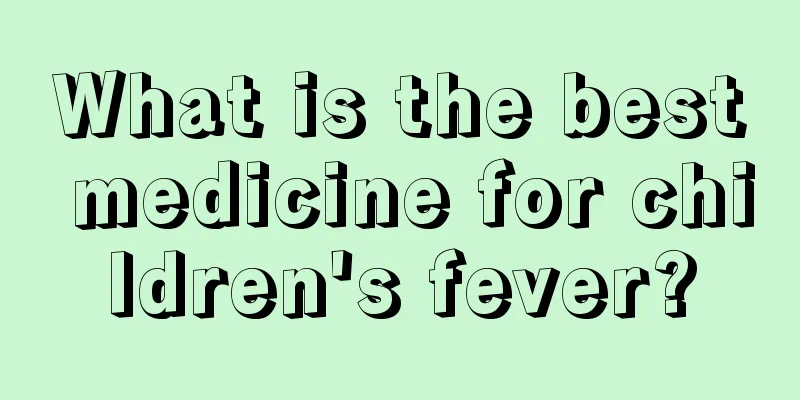
|
Children's body resistance is very poor, and they are easily infected by viruses and bacteria, causing their bodies to suffer from greater pain and suffering. Among them, fever is one of the most common diseases in children. Fever can cause children to become listless, have a poor appetite, and so on. In addition, severe fever can adversely affect the child's brain development. Therefore, fever needs to be treated in time. Let's take a look at what is the best medicine for children's fever? 1. Acetaminophen (also known as paracetamol) Usage: 10-15 mg/kg body weight/time, once every 4 hours, not more than 5 times in every 24 hours. Advantages: It is absorbed quickly and completely, and can produce an antipyretic effect within 30 minutes of oral administration. The side effects are relatively small, there is basically no irritation to the gastrointestinal tract, no effect on platelet function and coagulation function, and no nephrotoxicity, so it is relatively safe. Doctors usually use this medicine for children under 2 years old. It can also be taken with milk or juice. Disadvantages: Although it takes effect quickly to reduce fever, the time it takes to control body temperature is shorter than other drugs, and the time it takes to control fever is about 2-4 hours. 2. Ibuprofen Usage: It can be used to reduce fever in infants and young children, and relieve mild headaches, sore throats and toothaches caused by colds and flu. 5-10 mg/kg per dose based on body weight. Repeat every 6-8 hours if needed, not to exceed 4 times in 24 hours. Advantages: It and acetaminophen are two antipyretic drugs recommended by the World Health Organization and are also relatively safe antipyretic drugs. Its advantage is that it can reduce fever smoothly and for a long time, and the average fever-reducing time is about 6 hours, and up to 8 hours. Moreover, it is more effective than acetaminophen in reducing fever above 39°C. Disadvantages: Mild gastrointestinal discomfort, occasional rash and tinnitus, headache, effects on coagulation function and elevated transferase, etc. There are also reports of gastrointestinal bleeding and aggravation of ulcers. There are also reports that it occasionally causes reversible renal damage in states of dehydration, hypovolemia, and low cardiac output, and overdose may cause side effects such as central nervous system depression and epileptic seizures. Therefore, it is generally used for children with high fever over 3 years old. |
<<: What should I do if my child has a fever at night?
Recommend
How to treat children snoring when sleeping
Many parents often find that their children snore...
How to distinguish influenza from the common cold in children
Cold is a common disease in our daily life. No ma...
What foods are good for children to eat to nourish their brains?
Children's immune systems and organ developme...
Neonatal startle reflex
Many new parents do not understand some things ab...
How often should a newborn baby drink milk?
Newborn babies are relatively fragile, their bodi...
What to do if you find eczema in your baby who is less than one month old
When we see a small problem with a newborn baby, ...
How should tracheitis with sputum in children be treated?
If a child has influenza and is not treated immed...
Best treatment and prevention for eczema on baby's face
Many times due to weather changes, many children ...
Why does my child's feet hurt?
If children often have sore feet, parents must pa...
Symptoms of asthma in children at different stages
Children are a relatively large group in our live...
13 month old baby early education
Babies over one year old are already very cute. T...
What are the benefits of swimming for children?
Summer is here and many people choose to go to th...
What should I do if my child's teeth haven't fallen out and new teeth have grown?
Children may encounter various problems when they...
Reasons why children cough at night
Many young mothers do not have much common sense ...
What causes heart pain in children?
We know that heart disease is a disease that thre...
